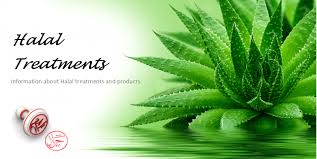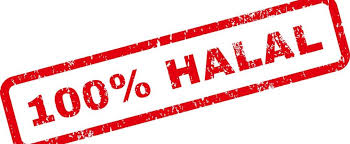This article provides an overview of the Islamic belief system and relates it to the consumption of medical products.
In Islam, any food and drink that can be consumed by a Muslim is termed as Halal.
The general principle of Sharia Law, which is the social, legal and moral framework of Islam, is that all food and drink is halal, unless there is a clear prohibition. For medicine to be deemed halal, the ingredients and method of production that is used, must be thoroughly checked to ensure they adhere to Islamic laws. For food to be deemed halal especially meat, the slaughter and preparation of animals for consumption must be in accordance to Sharia Law. However, the biggest challenge for Muslims seems to be obtaining details on ingredients and sources from manufacturers of pharmaceutical products.
Food products and ingredients that are prohibited to consume include; pork and pork by-products, lard, and alcoholic beverages. Consider the following excipients in medicine specifically:
- Islam strictly forbids pork within the diet, therefore the prescribing, administration and taking of porcine-derived medicines needs to be considered. However, Public Health England (PHE) has reiterated that the used of porcine gelatine in vaccines has been certified as acceptable by multi-faith groups including Muslim scholars who have previously confirmed that gelatine in vaccinations is considered halal. It is argued that porcine-derived medicines, may become temporary exempt from the dietary laws during the time of illness.
- Pork and non-halal animal gelatine in an edible form. The World Health Organisation (WHO) debates the Islamic purity laws on gelatine and explained the issue of transformation. Transformation is the process by which one element is converted into another element with entirely different properties and characteristics. This can change an ‘unclean’ substance into a ‘clean’ substance. It is a matter of personal opinion whether pork will remain pork.
- Ointments and creams which contain pig fat are unclean; their use is not permissible in Sharia. The transformation argument also applies to pork derivatives and again is a matter of personal opinion.
- Treatment of diabetes patients with insulin obtained from a porcine source might be tolerated because of ‘necessity’, given that the rules and principles of Sharia Law are observed. However, when there are acceptable non-pork derived alternative treatments, how does this change the status of pork derived medicines?
- Pork and non-halal animal derived glycerol/glycerine is not acceptable unless it has undergone a complete transformation deemed acceptable by the WHO. But at what stage is a complete transformation?
- Medicinal products containing alcohol are not permissible. The WHO also clarified that medicines which do contain alcohol for the sole purposes of dissolving or for preservation, are deemed acceptable until an alternative becomes available.

Which medicines present problems for Muslim patients?
Muslim consumers and patients must make a judgement call between halal and haram products when purchasing a food or pharmaceutical item. Members of the Islamic faith would not drink alcohol, eat pork or unclean meat, so why should medicine be an exception when there are developed substitutes available.
Any medicines which contain porcine or non-halal animal derived excipients or ingredients may cause issues to Muslim patients. There is no straightforward answer or definitive list of halal medicines. Ingredients, methods of preparation, premises and certification standards will vary between manufacturers.
The Muslim Food Board (TMFB) is an example of a certification company in the UK. Although the TMFB certifies mostly food although some over the counter (OTC) medicines are included in their lists of certified products. There are a range of different companies who can certify products as being halal, the main trustworthy organisations were discussed in a previous article that can be found (https://halaltreatments.com/2014/11/06/halal-certification-companies-in-the-uk/). These companies’ processes are subjective and certain Muslims may or may not consider them acceptable. If certified products are not available, alternative products that are vegetarian for example, should be sought after and used. If the patient considers that there are no suitable medicines available for them, they should seek advice from a local Imam or scholar. Religious leaders can provide guidance and may exempt these products for medical necessity on the interpretation of the religious scriptures.
Doctors prescribe medication based on what they feel is best for the patients. There should be no doubt that all patients must follow a doctor’s orders, but for Muslims the decision-making process is a lot harder. Muslims must also adhere to the laws of Islam which is important when purchasing medicine. When a doctor/GP prescribes medication, the patient is usually unaware that they may have purchased or may be about purchase a product that is non-halal.
Patients and consumers taking their medicines (patient compliance) is a very important issue for prescribers and anything preventing compliance is an issue for any responsible healthcare organisation. The halal status of a product must be an important consideration for a responsible prescriber when treating a Muslim patient.

In the United Kingdom, the National Health Service (NHS) serves and treats patients and claims to attempt to accommodate a variety religious beliefs. There has been recent criticism that the latest nasal spray flu vaccination for 2014, contains porcine gelatine. Some Muslims have expressed their discontent about not being informed about the porcine content of the vaccine being used in a national immunisation campaign for all children aged two, three and four years old. The immunisation programme is being expanded to include all children between 2 and 16 years old.
What is and what is not considered halal in any community should reflect the consensus of a societies well informed genuine opinion.
We would like to hear your comments and views in our comment section below.
Disclaimer: The aim of this article is to increase awareness of the term ‘Halal’ in relation to medication and to direct towards further sources of information. It is acknowledged that some of the religious concepts are subjective to individuals’ religious belief systems, which are known to vary considerably. Whilst this article may support in providing information, individuals remain responsible for verifying that their treatment is compliant with their own religious belief systems.
Courtesy: https://halaltreatments.com/